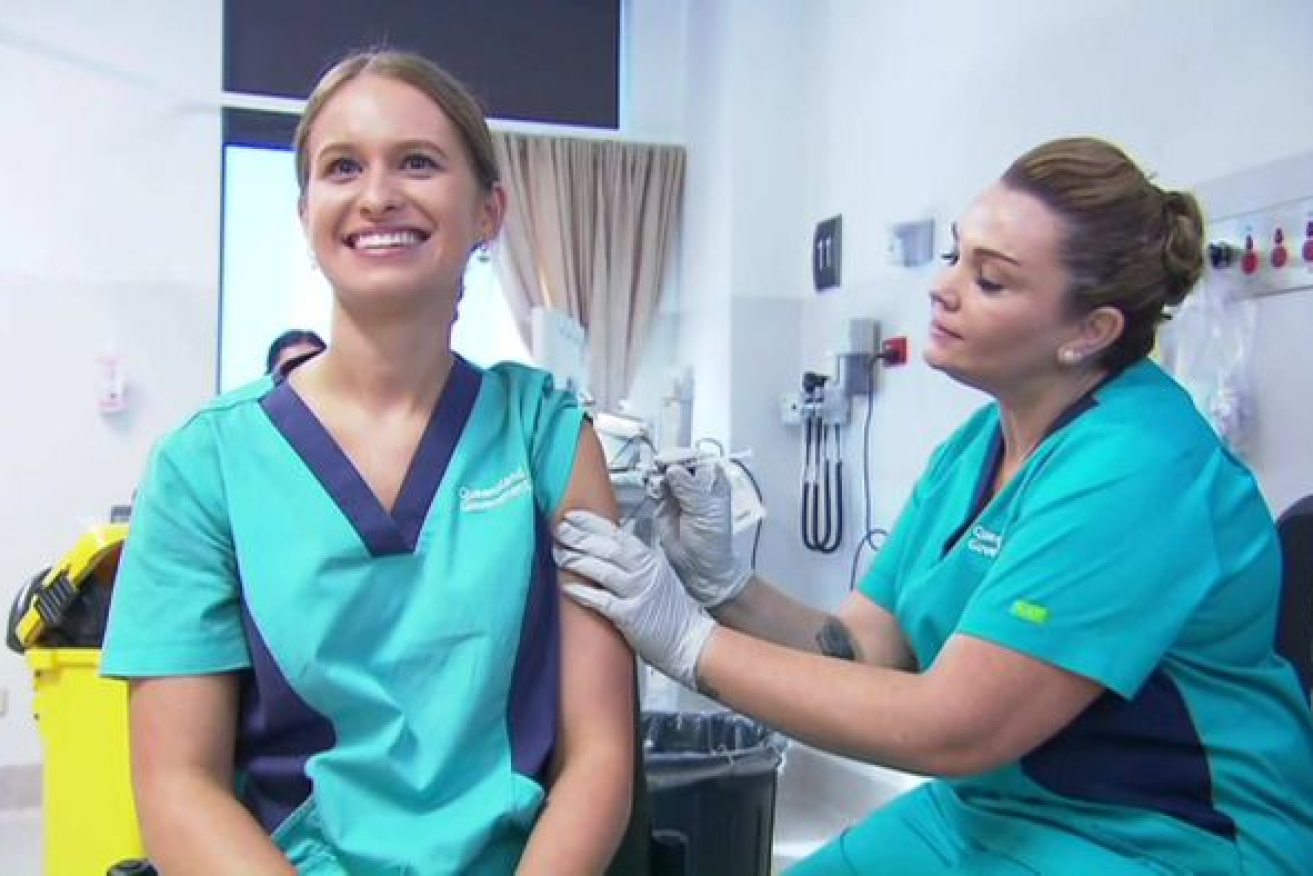Side effects are common, so are we over-reacting to one-in-a-million case?
The risk of blood clots from the AstraZeneca vaccine has prompted a change in approach. To date, only one Australian has been affected after more than a million vaccinations.

The first COVID-19 vaccine given in Queensland was to a nurse at the Gold Coast University Hospital. Photo: ABC
The Federal Government has taken expert advice that, for adults aged under 50, the Pfizer vaccine should be favoured over the AstraZeneca vaccine due to the latter’s risk of blood clots. The advice, based largely on overseas data, has thrown Australia’s vaccination rollout into disarray but could still change if the government is unable to source alternative vaccines or the risk of an outbreak intensifies.
A COVID-19 vaccine safety surveillance project, AusVaxSafety, has found 35.4 per cent of people who received their first AstraZeneca shot by April 4 reported no adverse events. The statistic came from 57,280 responses to an SMS or email asking about their health in the three days after their vaccination.
Of the 37,011 who did report an adverse event, they were generally mild and short-lived, including fatigue (51.5 per cent reported such symptoms), headache (44.8 per cent), muscle or body aches (42.3 per cent), and pain at the injection site (42.0 per cent).
According to AusVaxSafety, almost one in four people reported missing work, study or routine duties for a short period after receiving the AstraZeneca vaccine and 1.6 per cent said they went to a doctor or emergency department for follow-up.
Overall, and including the Pfizer vaccine now preferred for younger adults, there are about as many people reporting adverse events (50.6 per cent) as not (49.4 per cent). More than two thirds of people responded to the AusVaxSafety messages, including 24,057 Queenslanders.
Pfizer had a lower rate of adverse events, although it is unclear whether the self-reported method may have influenced the results, given many recipients have been health workers. Injection site pain was the most commonly reported adverse event after the first injection (29.6 per cent) while fatigue was more common after the second injection (48.1 per cent), when people were also more likely to report disruption to work, study or routine duties.
The Sydney Children’s Hospital Network, which runs AusVaxSafety through the National Centre for Immunisation Research and Surveillance, is being paid almost $10 million to monitor COVID-19 vaccine reactions until mid-2023.
It was engaged to do the work after the Department of Health conceded existing systems were inadequate, particularly given the rapid rollout of COVID-19 vaccines and the need to maintain public confidence in government handling of the pandemic.












